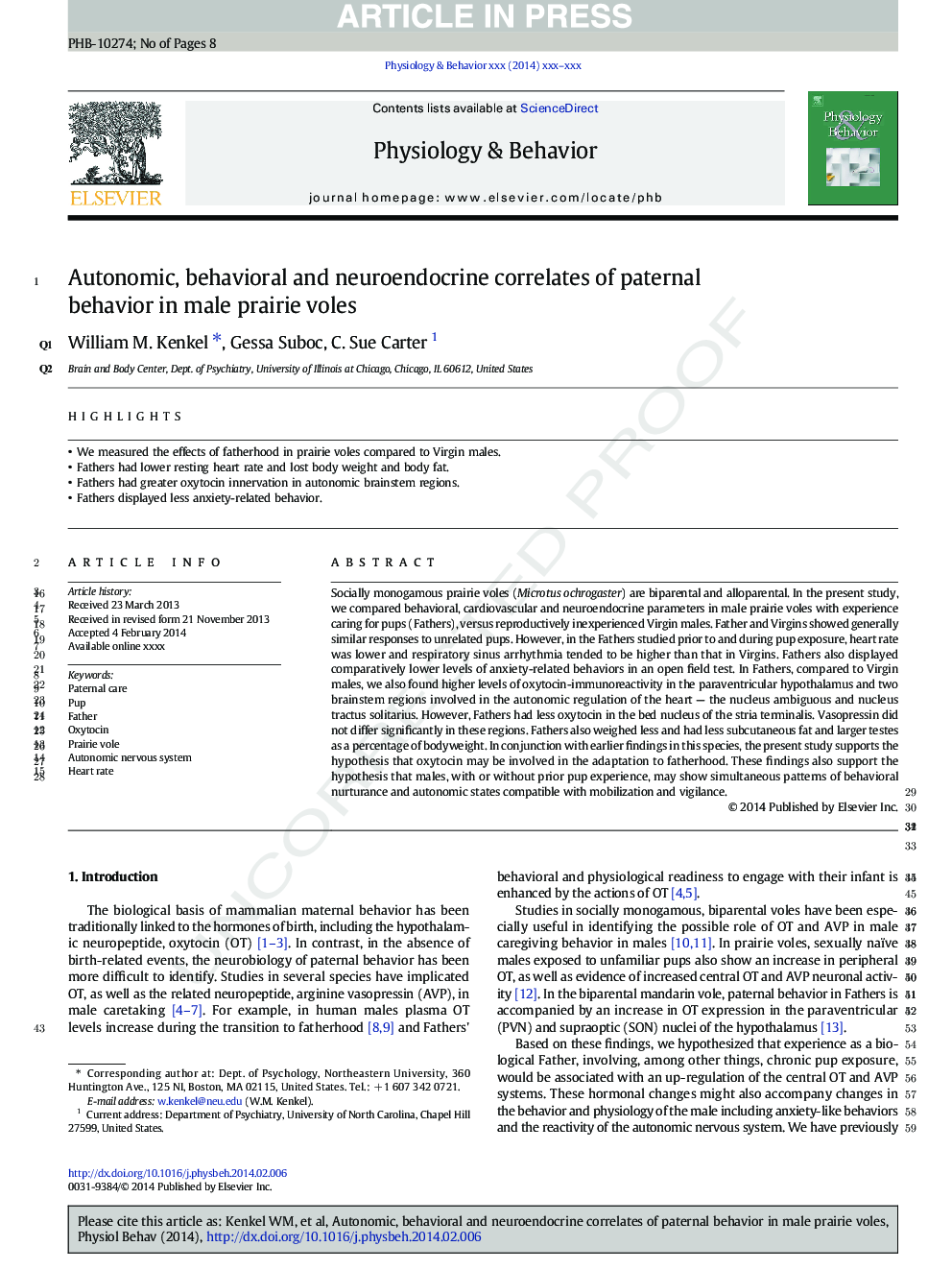| Article ID | Journal | Published Year | Pages | File Type |
|---|---|---|---|---|
| 5924483 | Physiology & Behavior | 2014 | 8 Pages |
Abstract
Socially monogamous prairie voles (Microtus ochrogaster) are biparental and alloparental. In the present study, we compared behavioral, cardiovascular and neuroendocrine parameters in male prairie voles with experience caring for pups (Fathers), versus reproductively inexperienced Virgin males. Father and Virgins showed generally similar responses to unrelated pups. However, in the Fathers studied prior to and during pup exposure, heart rate was lower and respiratory sinus arrhythmia tended to be higher than that in Virgins. Fathers also displayed comparatively lower levels of anxiety-related behaviors in an open field test. In Fathers, compared to Virgin males, we also found higher levels of oxytocin-immunoreactivity in the paraventricular hypothalamus and two brainstem regions involved in the autonomic regulation of the heart - the nucleus ambiguus and nucleus tractus solitarius. However, Fathers had less oxytocin in the bed nucleus of the stria terminalis. Vasopressin did not differ significantly in these regions. Fathers also weighed less and had less subcutaneous fat and larger testes as a percentage of bodyweight. In conjunction with earlier findings in this species, the present study supports the hypothesis that oxytocin may be involved in the adaptation to fatherhood. These findings also support the hypothesis that males, with or without prior pup experience, may show simultaneous patterns of behavioral nurturance and autonomic states compatible with mobilization and vigilance.
Related Topics
Life Sciences
Biochemistry, Genetics and Molecular Biology
Physiology
Authors
William M. Kenkel, Gessa Suboc, C. Sue Carter,
